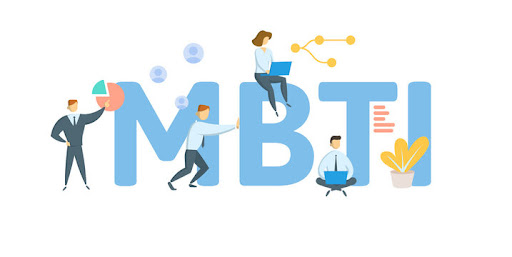Introduction
The Myers-Briggs Personality Type Indicator (MBTI) is a self-report inventory designed to identify a person’s personality type, strengths, and preferences. The questionnaire was developed by Isabel Myers and her mother Katherine Briggs based on their work with Carl Jung’s theory of personality types.
Its benefits include:
- Personal growth
- Communication
- Team development
- Leadership development
- Stress management
There are 16 MBTI types, when used in combination:
Extraversion or Introversion = Opposite ways to direct and receive energy
Sensing or iNtuition = Opposite ways to take in information
Thinking or Feeling = Opposite ways to decide and come to conclusions
Judging or Perceiving = Opposite ways to approach the outside world
ISTJ – The Duty Fulfiller
Quiet, serious, earn success by thoroughness and dependability. Practical, matter-of-fact, realistic, and responsible. Decide logically what should be done and work toward it steadily, regardless of distractions. Take pleasure in making everything orderly and organized – their work, their home, their life. Value traditions and loyalty.
ISFJ – The Nurturer
Quiet, friendly, responsible, and conscientious. Committed and steady in meeting their obligations. Thorough, painstaking, and accurate. Loyal, considerate, notice and remember specifics about people who are important to them, concerned with how others feel. Strive to create an orderly and harmonious environment at work and at home.
INFJ – The Protector
Quietly forceful, original, and sensitive. Tend to stick to things until they are done. Extremely intuitive about people, and concerned for their feelings. Well-developed value systems which they strictly adhere to. Well-respected for their perserverence in doing the right thing. Likely to be individualistic, rather than leading or following.
INTJ – The Scientist
Independent, original, analytical, and determined. Have an exceptional ability to turn theories into solid plans of action. Highly value knowledge, competence, and structure. Driven to derive meaning from their visions. Long-range thinkers. Have very high standards for their performance, and the performance of others. Natural leaders, but will follow if they trust existing leaders.
ISTP – The Mechanic
Tolerant and flexible, quiet observers until a problem appears, then act quickly to find workable solutions. Analyze what makes things work and readily get through large amounts of data to isolate the core of practical problems. Interested in cause and effect, organize facts using logical principles, value efficiency.
ISFP – The Artist
Quiet, friendly, sensitive, and kind. Enjoy the present moment, what’s going on around them. Like to have their own space and to work within their own time frame. Loyal and committed to their values and to people who are important to them. Dislike disagreements and conflicts, do not force their opinions or values on others.
INFP – The Idealist
Quiet, reflective, and idealistic. Interested in serving humanity. Well-developed value system, which they strive to live in accordance with. Extremely loyal. Adaptable and laid-back unless a strongly-held value is threatened. Usually talented writers. Mentally quick, and able to see possibilities. Interested in understanding and helping people.
INTP – The Thinker
Logical, original, creative thinkers. Can become very excited about theories and ideas. Exceptionally capable and driven to turn theories into clear understandings. Highly value knowledge, competence and logic. Quiet and reserved, hard to get to know well. Individualistic, having no interest in leading or following others.
ESTP – The Doer
Friendly, adaptable, action-oriented. “Doers” who are focused on immediate results. Living in the here-and-now, they’re risk-takers who live fast-paced lifestyles. Impatient with long explanations. Extremely loyal to their peers, but not usually respectful of laws and rules if they get in the way of getting things done. Great people skills.
ESFP – The Performer
Outgoing, friendly, and accepting. Exuberant lovers of life, people, and material comforts. Enjoy working with others to make things happen. Bring common sense and a realistic approach to their work, and make work fun. Flexible and spontaneous, adapt readily to new people and environments. Learn best by trying a new skill with other people.
ENFP – The Inspirer
Warmly enthusiastic and imaginative. See life as full of possibilities. Make connections between events and information very quickly, and confidently proceed based on the patterns they see. Want a lot of affirmation from others, and readily give appreciation and support. Spontaneous and flexible, often rely on their ability to improvise and their verbal fluency.
ENTP – The Visionary
Quick, ingenious, stimulating, alert, and outspoken. Resourceful in solving new and challenging problems. Adept at generating conceptual possibilities and then analyzing them strategically. Good at reading other people. Bored by routine, will seldom do the same thing the same way, apt to turn to one new interest after another.
ESTJ – The Guardian
Practical, realistic, matter-of-fact. Decisive, quickly move to implement decisions. Organize projects and people to get things done, focus on getting results in the most efficient way possible. Take care of routine details. Have a clear set of logical standards, systematically follow them and want others to also. Forceful in implementing their plans.
ESFJ – The Caregiver
Warmhearted, conscientious, and cooperative. Want harmony in their environment, work with determination to establish it. Like to work with others to complete tasks accurately and on time. Loyal, follow through even in small matters. Notice what others need in their day-by-day lives and try to provide it. Want to be appreciated for who they are and for what they contribute.
ENFJ – The Giver
Warm, empathetic, responsive, and responsible. Highly attuned to the emotions, needs, and motivations of others. Find potential in everyone, want to help others fulfill their potential. May act as catalysts for individual and group growth. Loyal, responsive to praise and criticism. Sociable, facilitate others in a group, and provide inspiring leadership.
ENTJ – The Executive
Assertive and outspoken – they are driven to lead. Excellent ability to understand difficult organizational problems and create solid solutions. Intelligent and well-informed, they usually excel at public speaking. They value knowledge and competence, and usually have little patience with inefficiency or disorganization.
